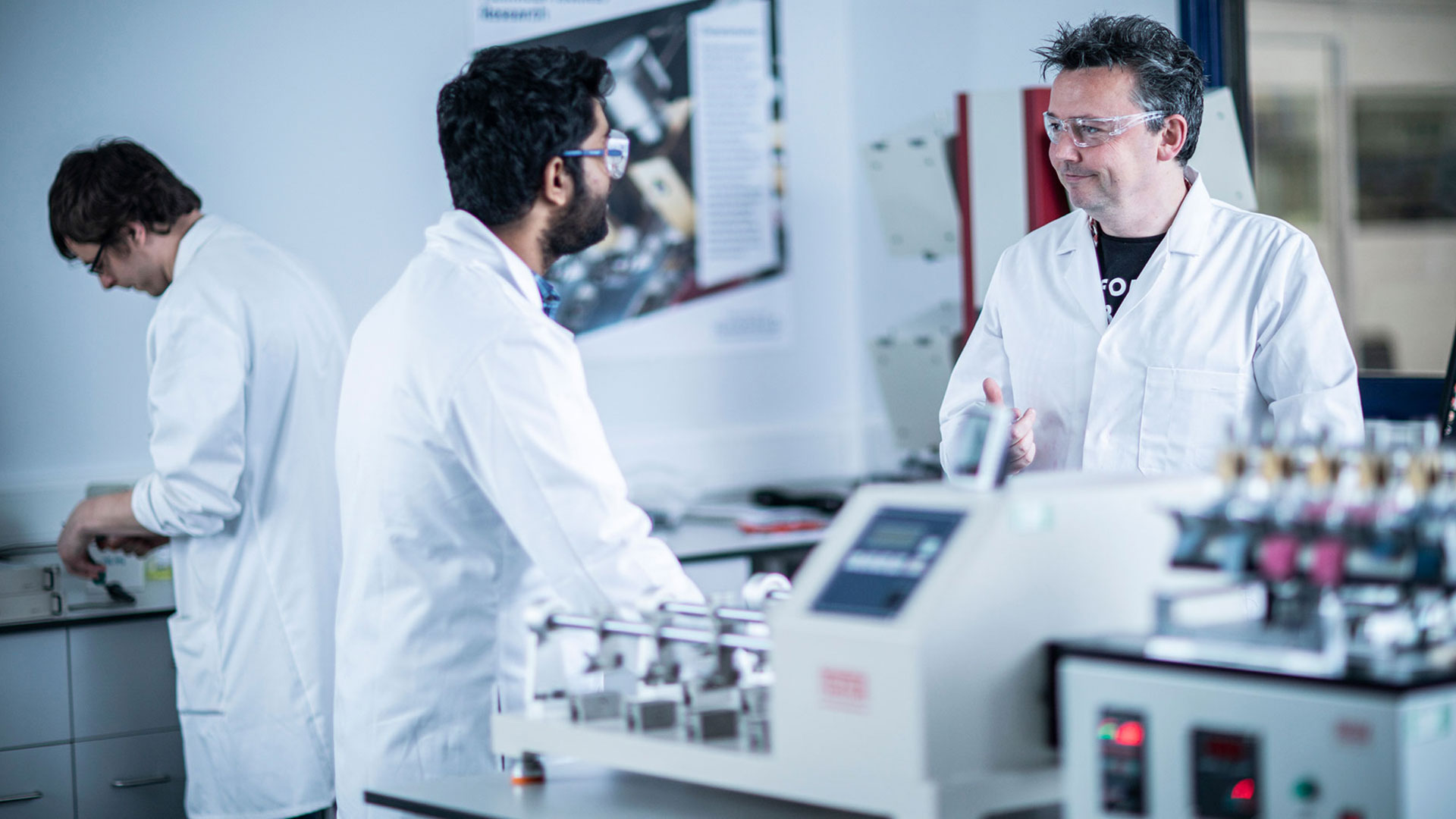
AstraZeneca
AstraZeneca is a global, innovation-driven biopharmaceutical company that operates in over 100 countries. It focuses on the discovery, development and commercialsation of prescription medicines for the treatment of cardiovascular, metabolic, respiratory, inflammation, autoimmune, oncology, infection and neuroscience diseases.
A number of challenges face the pharmaceutical industry, such as compound failure rates of over 90 per cent, patent expirations and increasingly stringent regulatory hurdles, and AstraZeneca has a long term strategy of partnering with academic institutions across all stages of development to combat these.
The five year collaboration with the University of Huddersfield has brought a more flexible, collaborative approach to the company. It has enabled translational activities with a wider range of organisations and created a lasting output in the establishment of the Royal Society Industry Fellows College to support collaborative research and development within the industry as a whole.
A five year collaboration between the Department of Chemical and Biological Sciences and AstraZeneca is showing how the University of Huddersfield can bring new opportunities to industry and support development of both SMEs and global pharmaceutical businesses.
The programme was instigated by Professor Joe Sweeney, who was awarded a Royal Society Industry Fellowship in 2008 to develop a new networking model for more effective collaborations between academia and industry. As an embedded science expert within the AstraZeneca project teams, Professor Sweeney encouraged a more open and cross-disciplinary approach to the challenges the company faced in maintaining its drugs pipeline.
“The pharmaceutical industry faces significant difficulties in developing a portfolio of compounds suitable for drug development,” explains Professor Sweeney. “It was extremely unusual for an academic institution to become involved in fundamental chemical research in this way, but the fresh perspective we brought could have an impact on developing a more robust pipeline for the company and reducing the failure rate of its candidate compounds.”
Dr David Hollinshead, who was AstraZeneca’s Director of Science Policy and Science Relations at the time, credits the involvement of Huddersfield as having opened the company’s eyes to new technologies, approaches and ideas. “Huddersfield approached us at a time of considerable change both in the company and in the industry,” he says. “AstraZeneca was very good at finding the right people but was not making best use of them in isolated, project focused work. Joe Sweeney’s involvement, as an expert in catalysed synthesis and on a pastoral level, encouraged greater interaction between disciplines which has enabled a more collaborative model to emerge.”
Since then the project has grown beyond a single collaboration to bring together scientists and professional associations on both sides of the industrial/academic divide to focus of cross-disciplinary translational chemistry. In recognition of the success of the programme the Royal Society Fellowship was extended in 2010 and Professor Sweeney now chairs the recently launched Royal Society Industry Fellows College.
“The College has grown out of our work with AstraZeneca to provide a forum for sharing good practice in how to be an effective collaborator and to provide mentorship to early career scientists to enable them to frame interactions with industry partners,” Professor Sweeney explains. “At present there is little communication between groups except through academic papers and conferences. If only a small number of academics spend physical time in industry, working with scientists on their day to day challenges, we could gain a better understanding of their environment and reshape our own research to meet industry needs.”
Early stage biotech and academic alliances are now part of AstraZeneca’s strategy to strengthen its pipeline, but Dr Hollinshead recognises the wider impact the collaboration with Huddersfield has had. “We now have a sustainable model for enhanced knowledge transfer that will enable the next generation of academics to shape their research agenda to industry needs and put more chemistry back in to the life science industry.”